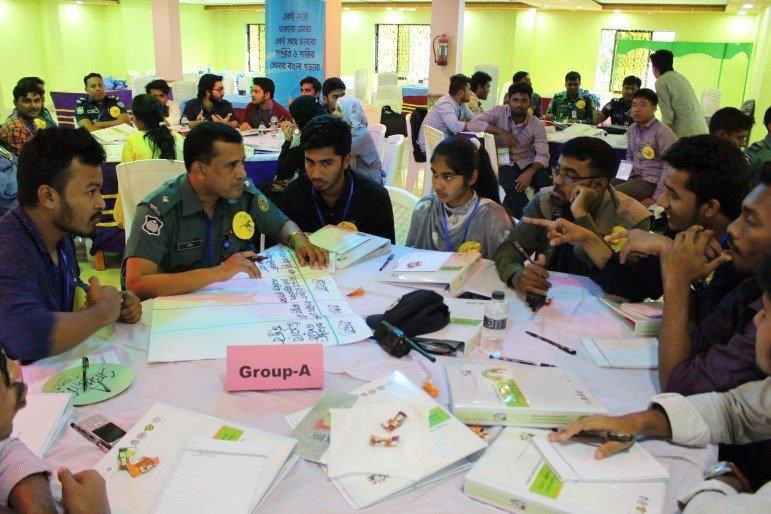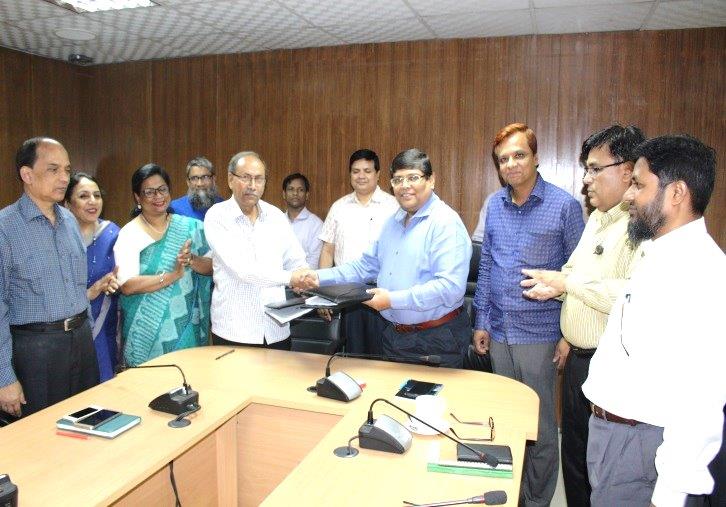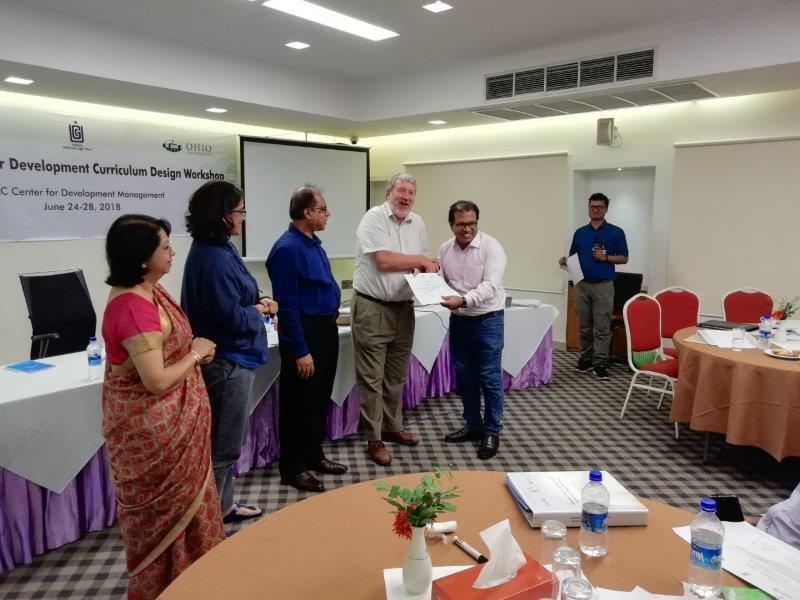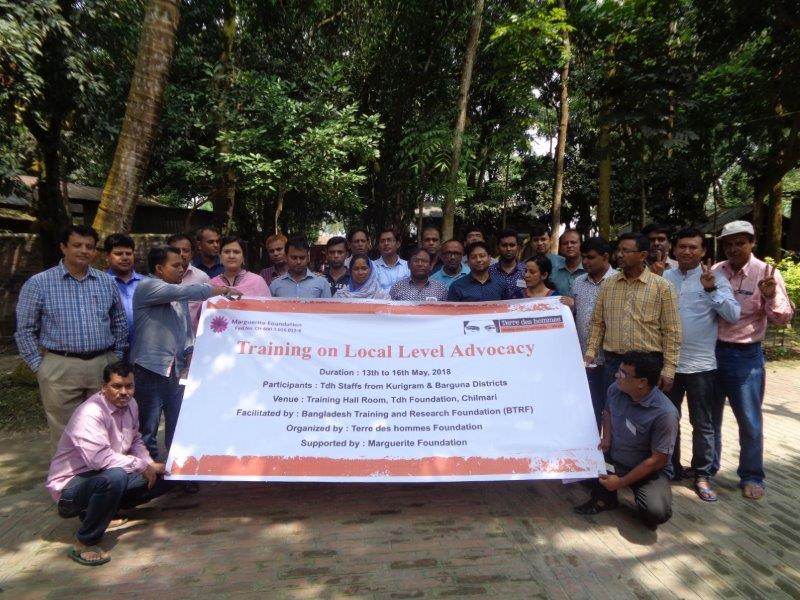
April-June 2018
The Importance of Leadership in Life

Leadership plays an important role in our life. Especially students go through many stages in life for their development where they need leadership skills. In a modern world, students are facing many challenges like- Contemporary Social Issues, Interfaith Issues, and conflicts between idealism and beneficial. That’s why they need leadership skills to accept challenges, solve problems and analyze the appropriate direction.
As a social development organization, BCCP believes in developing the leadership of students in a holistic manner, and as a part of its effort, BCCP offers various training and workshops to enhance organizational as well as individual capacity. To develop future leaders in the field of making peaceful Bangladesh in recent years BCCP offered a program named Student Leadership Development Workshop.
In modern-day Bangladesh, it has become necessary to direct the youth of the society, to harness their energy towards the betterment of the community they live in. In order to achieve this they need to know about their role, contemporary social issues, and responsible use of social media and overall communication with emphasis on interfaith dialogue; to learn about policing and reporting crime and how to bring about positive change through non-violent means. As a step forward, the program “Student & Police Engagement – Student Leadership Development Workshops” have recently accomplished the students of three selected universities/colleges of Chittagong to selected members of the Chittagong District Police and Metropolitan Police with the aim to remove misunderstandings about the police force, to build a relationship and form a working ground where they can help each other for a peaceful society and furthermore bring out leadership qualities in them. Before the Chittagong program, BCCP successfully accomplished the program in Rajshahi. BCCP is wishing to expand the program to the more universities/colleges in Bangladesh.
An initiative for peace and relation

“It could have been the last day of my life!” sobbed Mithila, a 23 year old student of a public university. The dirt seen on the streets of Dhaka is no secret; women of all ages have an undercurrent tension flowing their veins with the fear of being humiliated in one way or the other. She shared her story at the seminar conducted by Bangladesh Centre for Communication Programs (BCCP) which was the closing item for Student Leadership Development Workshop (SLDW).
SLDW is aiming to shape up the perceptions of university/college students and their organizations, so that they can play a pivotal role in stopping reprehensible behavior. To make this easier to achieve, the students and the police were brought together in order to discuss about the burning matters ruining the stability of this society.
It created a platform for students and police to come together and exchange their ideas and views about one another. Mithila was a participant of the SLDW and she expressed that her route towards her university is surrounded by hooligans who often speak out offensive statements aiming at women who use that road. One day they followed her for some time and she contacted the Community Police Forum. Almost immediately two police constables showed up to help her and teach a lesson to the hooligans. The glint in her eyes while expressing her gratitude to the police men uplifted BCCP to its core. Such an initiative can help millions like Mithila who have all been enthusiastic members of SLDW and have assisted in the establishment of Community Policing forums in various districts of Bangladesh – the forum is a product of SLDW and it has been solely established to make it convenient and helpful for everyone to seek assistance from the police.
A police participant opined about the general conception of the public about the police force. He thanked SLDW for giving them an opportunity to express their view point and clear out the misconceptions rooted from pointless speculations. He said there are many who can be enlisted as dishonest or ill-mannered but the majority of the police force has a genuine connection with their roots and feels obliged to help the community. When the whole country celebrates festivals and enjoys with their families, the police sacrifice their enjoyment and family time just to keep the nation safe and festivals uninterrupted.
The workshop was planned in a way that the interaction between the students and police will be at a maximum. In the process, among other things, participants will be empowered to become key communicators and future civic leaders, create a network for the exchange of ideas, preserve multiculturalism and pluralism, and contribute to capacity building of student organizations. In this way we will be able to remove any hesitation to interact between the police and the students leading to significant cooperation in eradicating extremism and radicalization.
A total of six workshops were conducted with six different themes, namely - Youth Leadership and Skills Development, International Relations and Interfaith Dialogue, Radicalization and Counter Radicalization, Policing in Bangladesh and Reporting Crime, Patriotism and Bringing Change & Contemporary Social Issues and Community Resiliency.
Leadership is a skill and it is obvious that the completion of six SLDWs cannot instill that in full; however with the exposure and facilitation, the police and student participants have had the unique platform to come together to jointly help the community we live in. BCCP humbly accepts the gratitude shown by the participants about the effectiveness of the Program. BCCP took up an initiative which was unique on its own, and so we are delighted with the overwhelming response.
BCCP came on board with DIMAPPP of Central Procurement Technical Unit

On 19th June, 2018 CPTU and BCCP entered into a contract under the guidance of IMED. The contract was to enable consultancy services on Behavioral Change Communication for a span of four years. Distinguished personalities were present at the signing ceremony. The Director General of CPTU Mr. Md. Faruque Hossain and other high officials along with high officials representing BCCP were present.

The World Bank has also extended its support towards CPTU’s initiative in relation to DIMAPPP. The objective of DIMAPPP is the development of Public Procurement and implementation of programs with competence. Reconstruction of CPTU, e-GP formalization, enhancement of public procurement of the government, professionalism and participation of citizens in implementing the project are the four components which CPTU will continue to focus upon from July 2017 to June 2022.
BCCP will work on strategic communication and participation of citizens in the project till June 2022. Keeping this in mind, BCCP will prepare a Communication Strategy and Action Plan and implement those accordingly. The ones which must be mentioned are listed as follows: establishing and strengthening government and contract forum, campaign, media mobilization, stakeholder mobilization etc.
Communication for Development Curriculum Design Workshop held

Communication for Development Curriculum Design Workshop held on June 24-28, 2018 at BCDM, Savar. Workshop was jointly organized by University Grants Commission of Bangladesh, UNICEF, Ohio University, and BCCP. All sorts of technical and logistic support of the workshop were provided by BCCP through a Sub-contract from Ohio University. A total of 30 faculties from public and private universities in Bangladesh have participated in this workshop, who successfully completed the Introduction to C4D e-learning course.
Main goal of the workshop was to develop a module for C4D curriculum at the undergraduate/post-graduate that can be combined in to one or more standalone courses integrated within existing courses; adapted for non-credit training and professional development programmes, e.g. for government and NGO staff.
Neha Kapil, Section Chief, C4D Bangladesh gave the welcome address. In her welcome speech she highlighted the role of BCCP as local partner. Waithira Gikonyo, Ph.D, Senior Learning Advisor, UNICEF HQ, New York shared the global experience of working with Academia. Professor Abdul Mannan, Chairman, UGC of Bangladesh gave his speech as Chief Guest.
Workshop was facilitated by Ohio University team under the leadership of David H. Mould, Ph.D, Professor Emeritus, Media Arts & Studies, Ohio University.
Training Module, Training and Guideline

Bangladesh Training and Research Foundation (BTRF), is creating a Social Behaviour Change Communication (SBCC) Guideline for audio-visual materials on Gender Equality and Sexual & Reproductive Health for ‘Strengthening Health Outcomes for Women and Children (SHOW)’ project of Plan International Bangladesh.
It will help the field workers of the project to bring about Social Behavior change among the target audience by addressing 10 issues including: Raising of Women’s agency and voice in decision making, Women’s access and control over resource, Male engagement in maternal, New-born and child care and family planning, Temporary and Long Acting Reversible Contraceptive (LARC), STIs/RTI including HIV/AIDS (utilization of health facilities i.e. taking GE/ASRHR services), Safe abortion and post abortion care, Prevention of Child marriage and Role of change makers to bring about an overall change. a five day long ‘Training of Trainers’ will be provided to the program persons from the training pool of Plan International Bangladesh and other partner development agencies.
Other than that, Training Module and a Guideline on ‘Local Level Advocacy’ has already been developed for the Program persons of Terre des homes (Tdh) and a four day long training has already been provided to the project personnel of Tdh.